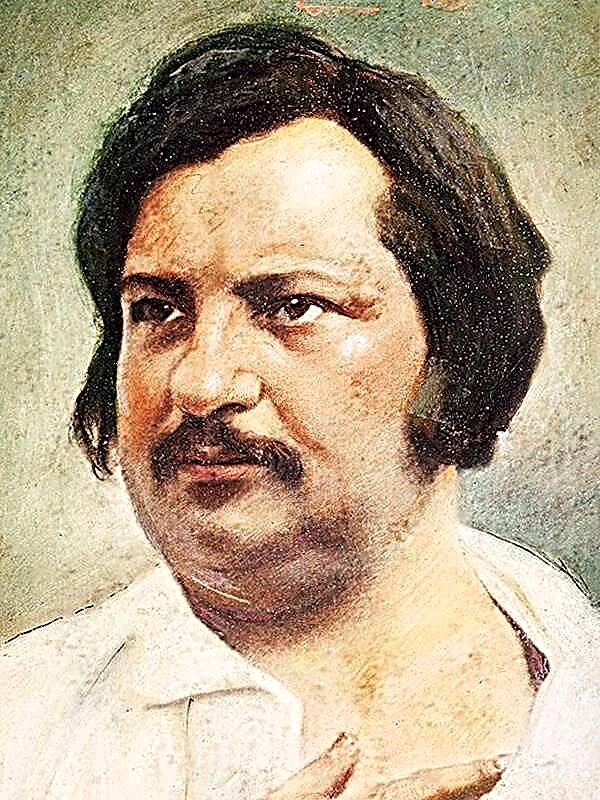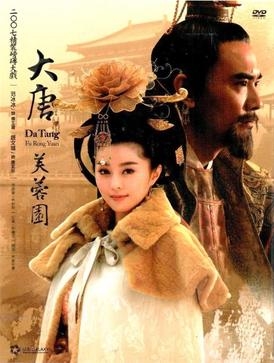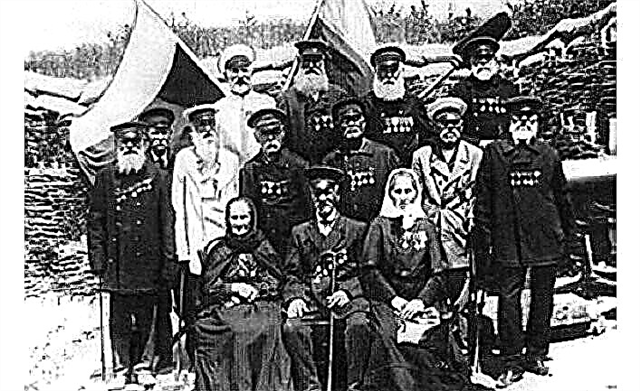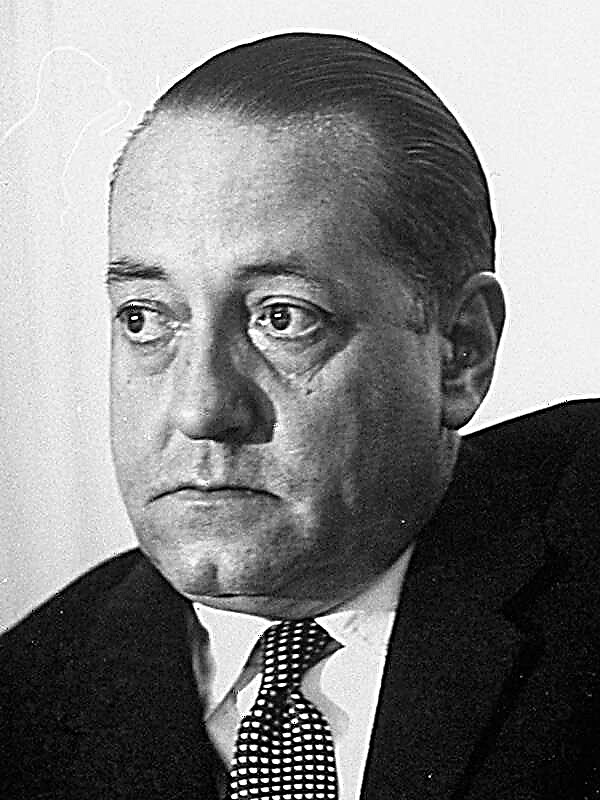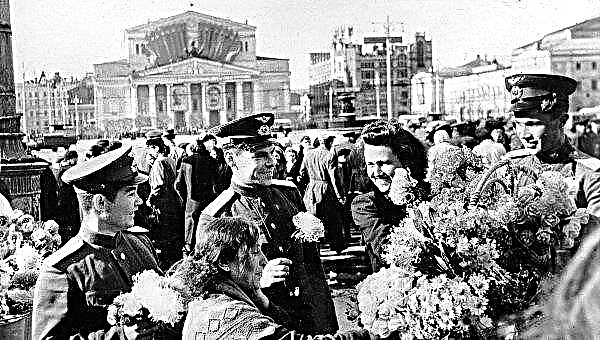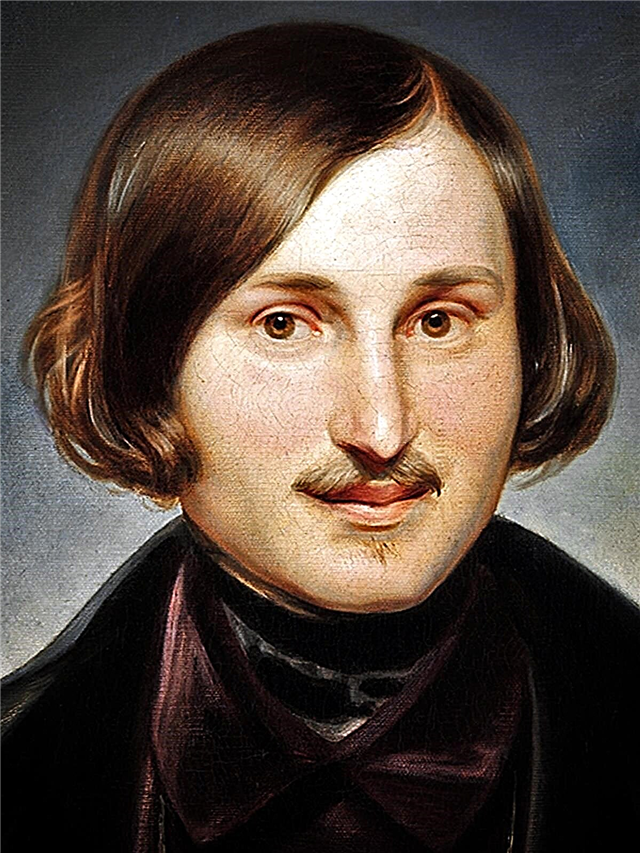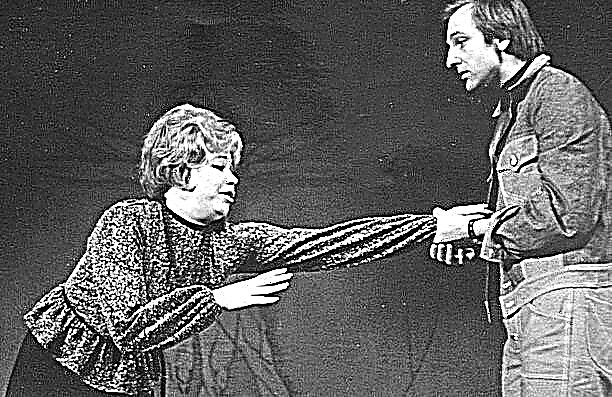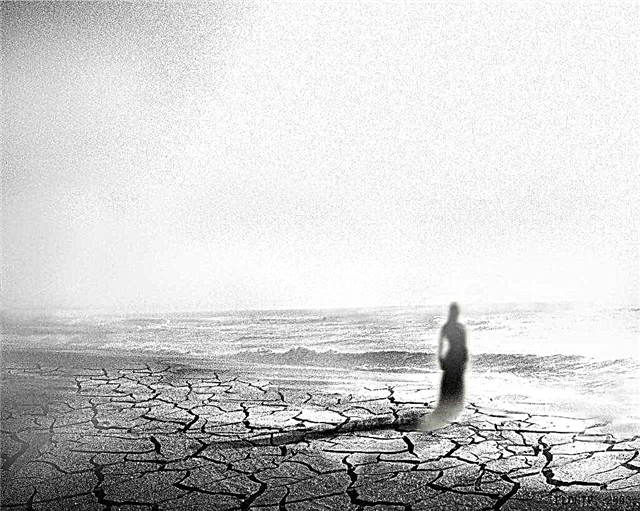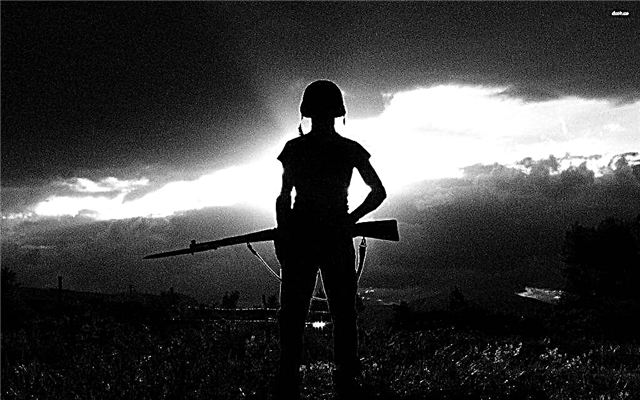Osip Abramovich's hairdresser, in which Petka lived and worked, was located near a block filled with "cheap debauchery houses." In a dirty, full of flies and the smell of cheap spirits room undemanding people were cut their hair - porters, janitors, clerks, workers and "ludicrously beautiful, but suspicious fellows."
Petka was the youngest employee, he cleaned the room and supplied hot water. Another boy, Nikolka, was three years older. He was considered a student, cursed, smoked cigarettes and was very important. Ten-year-old Petka did not smoke, did not swear, and envied his comrade. Left alone with Petka, Nikolka became kinder and explained to his friend, "what does it mean to cut to polka, beaver or parted."
Sometimes friends sat at the window, “next to the woman’s wax bust” and looked at the hot, dusty boulevard, all the benches of which were occupied by half-dressed men and women with tired, angry and loose faces. A "bright blue watchman" walked along the boulevard with a stick and made sure that no one thought to lie down on a bench or cool grass.
Women ‹...› spoke in hoarse, sharp voices, scolded, hugged men as simply as if they were all alone on the boulevard, sometimes they drank vodka and had a snack.
Sometimes a drunk man beat a drunk woman.No one stood up for her, on the contrary, the crowd was about to watch the fight. Then a watchman appeared, separated the fighters, and the battered woman was taken away somewhere.
Nikolka knew many women and told dirty stories about them. Petka was amazed at his mind and fearlessness and thought that he would become the same. But while Petka really "wanted to go somewhere else."
So dirty and monotonous were the Petkina days. The boy slept a lot, but did not get enough sleep. Sometimes he did not hear the orders of Osip Abramovich or confused them. There was no rest - the hairdresser worked both on weekends and on holidays. Petka became thin and stooped, on his sleepy face “thin wrinkles erupted”, turning him into an aging dwarf.
When Petka was visited by his mother, the fat cook Nadezhda, he asked to be taken from the hairdresser, but then he forgot about his request and indifferently said goodbye to her. Nadezhda thought sadly that her only son was a fool.
Once dull Petkin’s life changed - his mother persuaded Osip Abramovich to let his son go to the cottage in Tsaritsyno, where her gentlemen moved for the summer. Even Nikolka envied Petka, because he had no mother, and he was never at the cottage.
The bustling station, filled with people and sounds, stunned Petka. She and her mother got into the carriage of a country train, and the boy stuck to the window. All Petkin's drowsiness disappeared somewhere. He was never out of town, “everything here was amazing, new and strange for him” - and an amazingly huge world, and a high clear sky.
Petka ran from window to window, which the yawning gentleman with the newspaper did not like.Hope wanted to tell him that the hairdresser, whose son has been living for three years, promised to make a man out of Petka, and then he will become her support in old age. But looking at the displeased face of the master, the cook said nothing.
The first country impressions poured on Petka from all sides and "crushed his small and timid little soul."
This modern savage, snatched from the stone embraces of urban communities, felt weak and helpless in the face of nature. Everything here was alive for him, feeling and having will.
Petya was afraid of a dark, brooding and terrible forest, but he liked the bright green clearings and the bottomless sky. For several days he “staid like an old man” walked along the forest edge and lay in the thick grass, after which he “entered into a full agreement with nature”.
Petya was helped by high school student Mitya, who “unceremoniously entered into a conversation with him and surprisingly soon got together.” Inexhaustible for inventions, Mitya taught Petka to fish and swim, led him to explore the ruins of the palace. Gradually, Petka forgot about the hairdresser, started walking barefoot, freshened up, and old wrinkles disappeared from his face.
At the end of the week, the lord brought a letter from the city for Hope - Osip Abramovich demanded that Petka return. At first, the boy did not understand why and where he needed to go, because “another place where he always wanted to go was already found” and he had so many wonderful things to do here. But he soon realized that the new fishing rod was a mirage, and Osip Abramovich was an indisputable fact, and “didn’t just cry like city children, thin and emaciated, cry, he screamed louder than the throatiest man and started rolling on the ground like those drunk women on the boulevard. "
Little by little Petka calmed down, and the master, gathering for the evening of dances, told his wife that "children's grief is short-lived," and "there are people who live worse."
In the morning, Petka rode on the train again, but he no longer looked out of the window, but sat quietly, graciously folding his hands on his lap.
Hustling among the rushing passengers, they went out onto a rattling street, and the big greedy city indifferently swallowed up their little victim.
In parting, Petka asked his mother to hide his new fishing rod - he still hoped to return.
Petka remained in the dirty, stuffy hairdresser and was again ordered: “Boy, water!” In the evenings, he whispered to Nikolka “about the cottage, and talked about what doesn’t happen, which no one had ever seen or heard,” and the friend cursed, childishly, vigorously and incomprehensibly: “Damn it! To get out! ”
And on the boulevard a drunk man beat a drunk woman.

